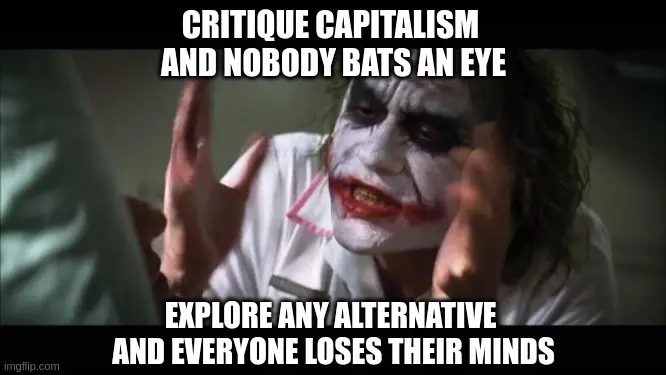That's kind of a straw man, though, isn't it? Governments of capitalist countries have worked hard to suppress non-capitalist movements within and without their country, but that's just what governments do. The Soviet Union was communist (as pure communist as the US is pure capitalist, which is to say, not very), and that also suppressed any alternatives. It's not a function of the economic system; it's a characteristic governments repeatedly demonstrate, regardless of their economic ideology.
I agree with the grandparent argument: capitalism isn't perfect, but it's the best thing we have so far. Personally, I don't believe communism can work, mainly because I think it goes against human nature. Except for clan behavior - altruism to your family, friends, neighbors - people are generally selfish, and communism requires us to be altruistic at our own expense to people who we not only don't know, but who may talk differently from us, look different from us, have different culture from us. And even at the clan level, communism struggles. There were hundreds of attempts at building communes in the US in the 60's, and I honestly believe most died out not because they were subverted by the government, but because people are selfish and they collapsed under their own internal conflicts. Very few of those remain, and when you look at them, they have fairly rigid internal structures that re-enforce the commune.
Maybe if we can make it to post-scarcity, we'll be able to afford to be communist, because then it won't depend on altruism. But right now, when times are hard and food is scarce, most humans will look to feeding their own children first, and the priorities of the commune tear like tissue. Capitalism endures because it's built upon greed and selfishness, and those come easy to humans. When times are hard, we tend to fall back on barter, which is capitalism.
Anyway, saying that the US suppression of communism in Latin American countries says less about capitalism than it says about the US government, and their perceived interests. The proof is in the parallels in Soviet and communist (Mao era) China regional actions.




